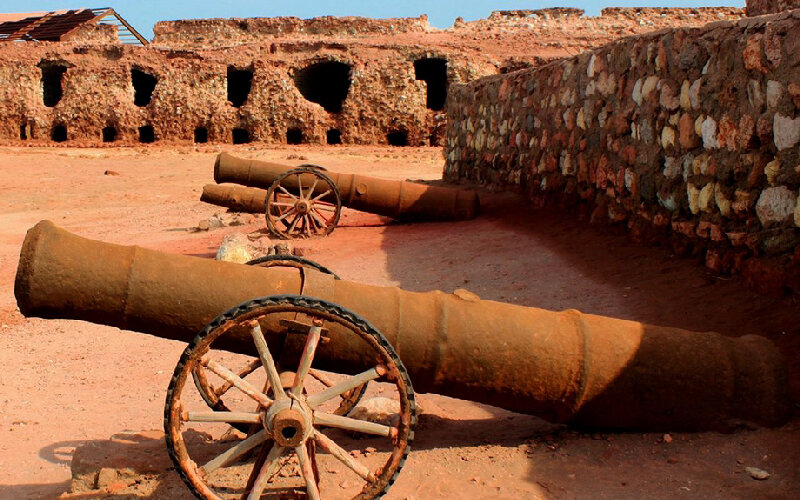Lisbon eager to help restore its colonial heritage in southern Iran, envoy says

TEHRAN- Portuguese Ambassador to Tehran Carlos Costa Neves has said he is keen to negotiate with Iranian Tourism Minister Ezzatollah Zarghami about the restoration and excavation of a 16th-century Portuguese fort on Iran's Qeshm Island.
He made the remarks during a meeting with Iranian archaeologist Esmail Yaghmaei, who is the author of the “Colonial Stronghold”, a book that features archaeological excavations conducted in/around the fortress, ISNA reported on Tuesday.
“Since I am a fan of historical books, I was very curious to learn more about the book and its author after reading the news of its publication in the Tehran Times,” the envoy said.
The book depicts an important part of the history of my country, contains rare information about the excavations of the Portuguese fort in Qeshm, so it became very important to me, and I requested its translation into both English and Portuguese, he added.
He remarked that he was surprised by the level of advance and importance of archeology in Iran.
For the book's next editions, he also agreed to provide documents, maps, and manuscripts about the Portuguese forts kept at the Foreign Ministry of Portugal.
The stronghold was built upon the orders of Portuguese commander Alfonso de Albuquerque when his forces seized the islands in the early sixteenth century.
The Portuguese also left other military structures on the Iranian islands of Hormuz and Larak and in the port of Kong as legacies of their colonialism in the Persian Gulf.
The Persian–Portuguese war took place from 1507 to 1622 and involved the Portuguese Empire and the Kingdom of Ormus, its vassal, on one side, and the Safavid Persia (Iran) with the help of the Kingdom of England on the other side.
In 1622 when the Persians retook Hormuz and other occupied lands, the Portuguese Empire was one of the largest and most powerful empires in the world.
ABU/AFM
